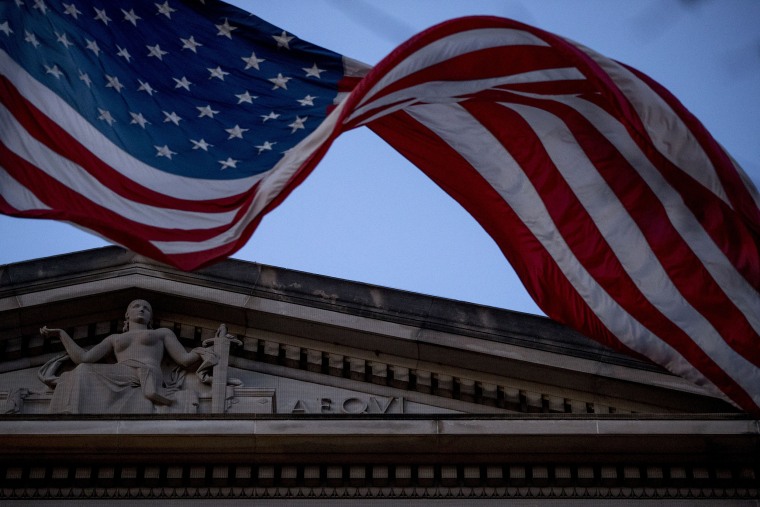It may be tempting to think Donald Trump's many scandals, abuses, and alleged crimes are far less relevant than they were a week ago. After all, one of the benefits of the Republican exiting the White House is our ability to shift our collective focus elsewhere.
But reports like this one from the New York Times matter, even after Trump is gone from public office.
The Justice Department's top leaders listened in stunned silence this month: One of their peers, they were told, had devised a plan with President Donald J. Trump to oust Jeffrey A. Rosen as acting attorney general and wield the department's power to force Georgia state lawmakers to overturn its presidential election results.
As the report explained, Jeffrey Rosen, the acting attorney general Trump tapped for the job, refused to go along with any such scheme, which apparently led Trump to consider a Plan B: he considered a gambit in which he'd fire Rosen and replace him with Jeffrey Clark, who led the Justice Department's civil division, and who'd been "devising ways to cast doubt on the election results and to bolster Mr. Trump's continuing legal battles and the pressure on Georgia politicians."
Trump backed off, not because the plan was stark raving mad -- though it certainly was -- but because the Justice Department's senior leadership team threatened to resign en masse if Rosen was ousted. Trump decided such tumult would "eclipse any attention on his baseless accusations of voter fraud."
Note, this wasn't just some random thought experiment. The Times' report added that there was a "bizarre" presidential meeting earlier this month in which Rosen and Clark made competing presentations, which "officials compared with an episode of Mr. Trump's reality show 'The Apprentice,' albeit one that could prompt a constitutional crisis."
The same article noted that Trump began lobbying Rosen as far back as mid-December, telling him "he wanted the Justice Department to file legal briefs supporting his allies' lawsuits seeking to overturn his election loss." The then-president also urged Rosen "to appoint special counsels to investigate not only unfounded accusations of widespread voter fraud, but also Dominion, the voting machines firm." The lobbying continued, with phone calls and in-person meetings.
In other words, Trump told the acting attorney general to side, not with the rule of law, but with his ridiculous legal team, which filed dozens of failed and embarrassing anti-election lawsuits. It was after Rosen balked that Trump considered the plan to fire him and replace him with a lawyer who intended to use federal law enforcement to try to overturn election results the White House didn't like.
Complicating matters, while the Times' report focused on Trump plotting to use the Justice Department to target Georgia's vote tallies, the Wall Street Journal published a related report over the weekend, adding that Trump also "pushed the Justice Department to ask the Supreme Court to invalidate President Biden's victory," which didn't happen because Trump's own appointees "refused to file what they viewed as a legally baseless lawsuit in the Supreme Court."
Meanwhile, Rep. Scott Perry (R-Pa.), a member of the right-wing House Freedom Caucus, reportedly helped arrange the entire scheme: a separate New York Times article, published yesterday, said it was the congressman who first alerted the then-president to Clark and his anti-election conspiracy theories.
What we're left with is a stranger-than-fiction story in which a sitting American president considered orchestrating a coup at the Justice Department, all in the hopes of using federal law enforcement to help him acquire power he did not earn.
There may be a temptation to think revelations like these are shocking, but irrelevant. Trump is out of office, after all, and it seems unlikely that Congress will impeach him for a third time.
But it's not quite that simple. For one thing, prosecutors are reportedly weighing a criminal investigation into Trump's efforts to overturn Georgia's election results, and his involvement in this scheme may well be directly relevant to the investigation.
For another, an impeachment trial in the U.S. Senate will begin in a couple of weeks, and the more revelations like these come to the fore, the more work Republicans will have to do to excuse some of the most outrageous abuses in American history.
Trump's political allies suggested a delay before the trial date would give his defense attorneys more time to prepare their arguments, but there's a flipside, too: the more we wait for the trial to start in earnest, the more we learn about Trump's apparent abuses.

